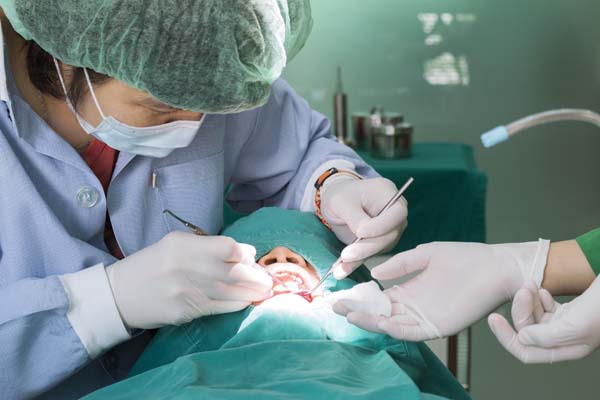
Image Source: Google
Wisdom teeth, also known as third molars, are the last set of molars to emerge in the back of the mouth. While some people have no issues with their wisdom teeth, others may experience complications that require extraction. If you are facing the prospect of having your wisdom teeth removed, it is important to understand the process and what to expect before, during, and after the procedure.
First and foremost, it is essential to consult with a dentist or oral surgeon to determine if wisdom teeth extraction services is necessary. X-rays will be taken to assess the positioning of the wisdom teeth and determine if they are causing any issues such as crowding, impaction, or infection.
The extraction of wisdom teeth is typically done under local anesthesia, sedation, or general anesthesia, depending on the complexity of the procedure and the patient's comfort level. Your dentist or oral surgeon will discuss the best option for you during the consultation.
The extraction process itself involves making an incision in the gum tissue to access the tooth, removing any bone that may be blocking access, and then extracting the tooth. In some cases, the tooth may need to be divided into sections to facilitate removal.
After the wisdom teeth have been removed, it is normal to experience some swelling, pain, and bleeding. Your dentist or oral surgeon will provide you with detailed post-operative instructions on how to care for your extraction site and manage any discomfort. This may include using ice packs to reduce swelling, taking prescribed pain medication, and avoiding certain foods that could irritate the extraction site.
It is important to follow your dentist's instructions carefully to ensure proper healing and minimize the risk of complications such as dry socket, infection, or prolonged pain. You may also be advised to gently rinse your mouth with warm salt water to help keep the extraction site clean and promote healing.
Recovery time after wisdom teeth extraction can vary from person to person, but most people can expect to resume their normal activities within a few days to a week. It is important to rest and give your body time to heal during this period. Avoiding strenuous activities and sticking to a soft diet can help speed up the recovery process.
It is normal to experience some discomfort and swelling after wisdom teeth extraction, but if you experience severe pain, excessive bleeding, or signs of infection such as fever or pus drainage, it is important to contact your dentist or oral surgeon immediately. These could be signs of complications that require prompt attention.
While wisdom teeth extraction may seem daunting, it is a common procedure that is performed routinely by dentists and oral surgeons. Removing problematic wisdom teeth can help prevent future dental issues such as crowding, misalignment, and infection. By understanding the process and following your dentist's instructions, you can ensure a smooth and successful recovery.
In conclusion, if you are facing wisdom teeth extraction, it is important to be informed about the process and what to expect before, during, and after the procedure. Consulting with a dentist or oral surgeon, understanding the extraction process, following post-operative instructions, and allowing for proper recovery time are key steps in ensuring a successful outcome.
